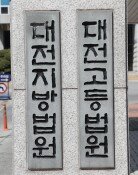Court issues ruling to protect Daewoo Motor¡¯s assets
Court issues ruling to protect Daewoo Motor¡¯s assets
Posted November. 14, 2000 19:54,
The Inchon District Court on Tuesday handed down a ruling to protect all assets of Daewoo Motor, which went bankrupt recently. Under the court¡¯s decision, all of the company¡¯s liabilities and credits have been frozen and the disposal of its assets has also been strictly banned. However, the ruling does not affect wages, taxes and utility charges. The measure also prohibits Daewoo Motor from obtaining fresh loans and discounting commercial bills, and bans the recruitment of new employees except for laborers engaged in production work.
An official of Daewoo Motor said that in order to issue fresh commercial bills to subcontractors, the company requires a court ruling on the launch of court receivership. Therefore, the official said, the company is now strongly pushing for means to issue commercial bills at the present stage after obtaining approval from creditors.
However, he predicted, the issuance of fresh commercial bills is not likely to be allowed for the time being. Thus it is expected that subcontractors will continue to suffer financial difficulties and it also remains unclear whether the Pupyong plant of Daewoo Motor will be able to go back into operation.
The court, however, did not appoint any trustees of Daewoo Motor¡¯s properties, so the management system led by Chairman Lee Jong-Dae is expected to last for a while.
Meanwhile, the Korea Development Bank appointed Park Sang-Bae, a director who spearheaded negotiations on the sale of Daewoo Motor, as the chief of the management and planning headquarters and allowed Lee Sung-Keun, a director in charge of special business, to take Park¡¯s position.
Daewoo Motor filed for court receivership on Nov. 10 with the Inchon District Court. The court is scheduled to issue a ruling on the start of procedures for court receivership by Dec. 9, one month after the application date, and if the ruling is given, the company will arrange a liquidation plan and go under court protection.




![[속보]美 “미국인은 이란 당장 떠나라” 대사관 긴급 공지](https://dimg.donga.com/c/138/175/90/1/wps/NEWS/IMAGE/2026/01/13/133147285.1.jpg)


